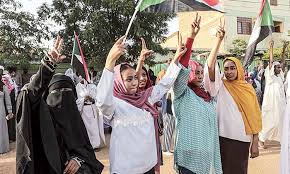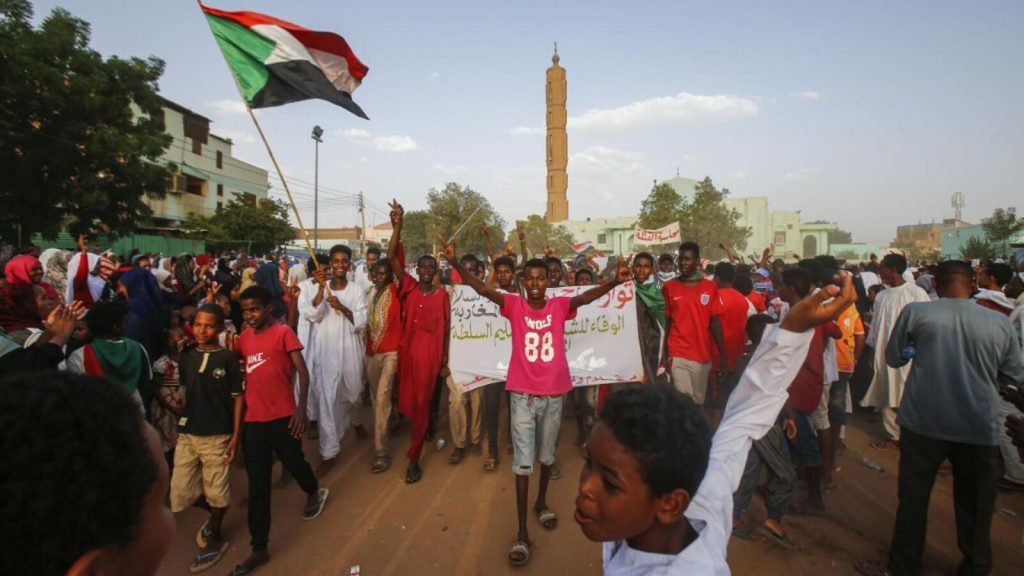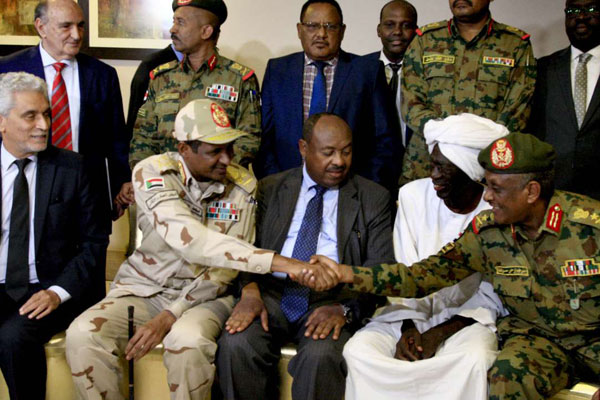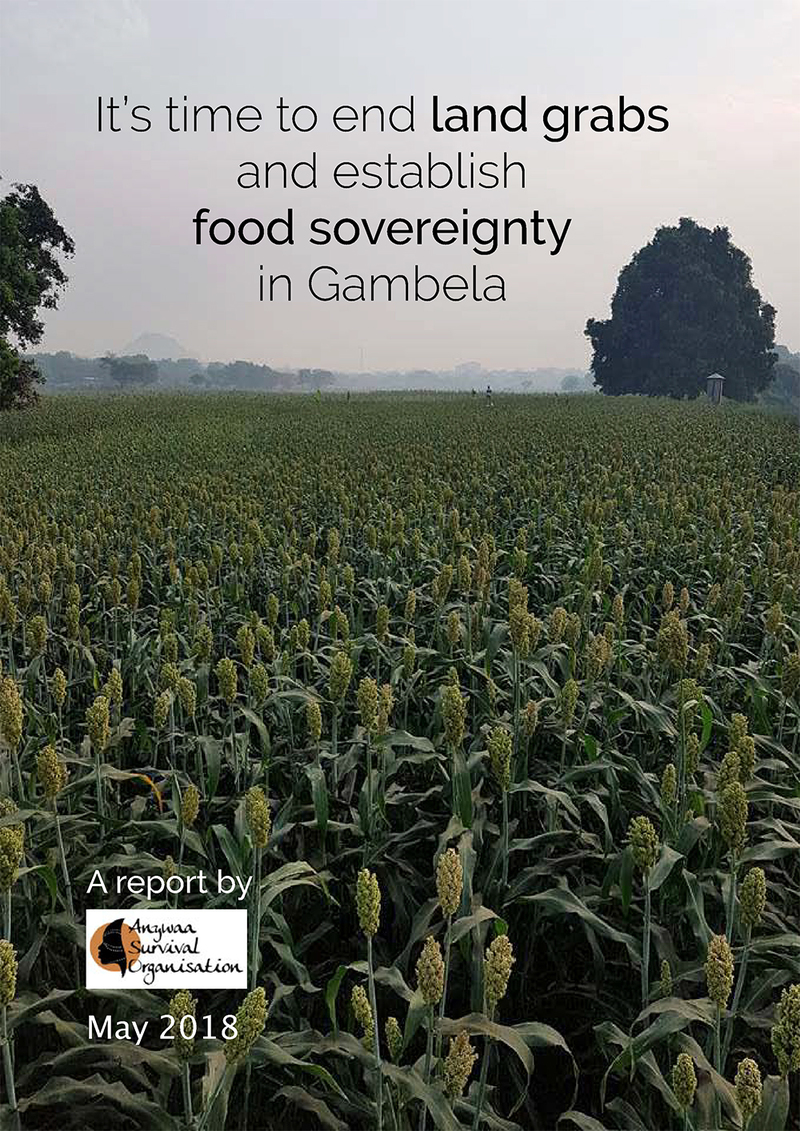loyola llothta
☭☭☭

12 July 2019
Political Agreement in Sudan Sets Stage for Interim Governing Council
Armed opposition groups are now making demands for positions within the sovereign council
By Abayomi Azikiwe
What has been hailed as an historic pact between the Forces for Freedom Change (FFC) and the Transitional Military Council (TMC) in the Republic of Sudan, the two major entities vying for state power, has left out some important interests which could derail any attempt to bring peace and stability to the country of over 41 million people.
Representatives of the FFC led largely by the Sudanese Professional Association (SPA) have been holding talks with the TMC which initiated the coup against ousted President Omar Hassan al-Bashir on April 11.
These discussions have broken off on at least two occasions due to repressive actions taken by the police, para-military forces and conventional units of the security services. The breaking up of a two month occupation by thousands of opposition supporters outside the ministry of defense on June 3, created tensions which threatened to paralyze any orderly transformation process.
TMC spokespersons and FFC leaders claimed widely differing numbers of casualties stemming from the crackdown. FFC figures of the numbers killed exceeded 100. The TMC said the numbers of deaths were far fewer at 62.
At any rate this episode in the post-coup period clearly illustrated the willingness of the TMC to carry out repressive measures against its opponents. Although reports suggested the Rapid Support Forces (RSF), a militia organization tied to the Sudanese Armed Forces (SAF), were to blame for initiating the violence on June 3, high-ranking military commanders obviously endorsed the operation.
Since December the oil-producing nation in northcentral Africa has undergone tremendous upheaval. Sparked by the sharp rise in bread and other commodity prices, the protesters quickly turned their focus on the toppling of the National Congress Party (NCP) government of former President al-Bashir.
Scores of people were arrested, wounded and killed over a period of four months. After an April 6 sit-in began in the capital of Khartoum in front of the military headquarters, within five days, al-Bashir was removed by his fellow officers.
Details of the FFC-TMC Agreement
Not satisfied with the removal of the president, the FFC insisted upon the handing over of power to a government chosen by them. Of course there was significant resistance to this proposal both from the TMC as well as other opposition parties which were not signatories to the Declaration of the FFC issued on January 1.
The African Union (AU) appointed a mediator after a visit to the country by Ethiopian Prime Minister Abiy Ahmedin June. The July 5 settlement has been endorsed by the AU along with many other governments including Turkey, Djibouti, Jordan, United Arab Emirates (UAE), among others.

Sudan demonstrations after the July 5, 2019 agreement
In an article on the agreement published by Al Jazeera on July 6, it says:
“Both sides agreed to establish a joint military-civilian sovereign council that will rule the country by rotation ‘for a period of three years or slightly more’, Mohamed Hassan Lebatt, African Union (AU) mediator (from Mauritania), said at a news conference on Friday (July 5). Under the agreement, five seats would go to the military and five to civilians, with an additional seat given to a civilian agreed upon by both sides. The ruling Transitional Military Council (TMC) and the civilian leaders also agreed to launch a ‘transparent and independent investigation’ into the violence that began on June 3 when scores of pro-democracy demonstrators were killed in a brutal military crackdown on a protest camp in the capital, Khartoum.” (See this)
Although the FFC opposition groupings had previously called for a civilian-led transitional authority to rule Sudan until elections were held, the current arrangement will leave the representatives from the military in charge for nearly another two years. Other aspects of the reform process will ostensibly result from ongoing negotiations.
The same above-mentioned report goes on to emphasize that:
“The military would lead the sovereign council for the first 21 months, and a civilian would take over for the remaining 18 months, it said. The FFC would appoint a cabinet of ministers, the SPA said, adding that a legislative council would be formed after the appointment of the sovereign council and the cabinet. The two sides also agreed to set up a committee of lawyers, including jurists from the AU, to finalize the agreement within 48 hours.”

Sudan agreement signed on July 5, 2019 by TMC and FFC along with African Union mediator
Thousands of Sudanese took to the streets to celebrate the settlement. However, several opposition parties which have significant support within the country have rejected the FFC-TMC deal.
Problems with the Agreement: Other Parties and the Armed Opposition
Soon after the TMC-FFC agreement was reached, Ali Al-Hajj of the Coordination of National Forces (NF) alliance announced on July 7 that his coalition rejected the deal. Al-Hajj, who is Secretary General of the Popular Congress Party (PCP), called upon the FFC to negotiate directly with other parties which were not involved in the discussions surrounding the AU-mediated arrangement.
Mahmoud Abdu al-Jabar of the Umma Forces Party (UFP) which is a member of the National Front for Change (NFC) alliance seemed to have welcomed the agreement in a general sense while rejecting what the grouping considered an exclusion policy by the FFC. Al-Jabar is refusing to accept the arrangement where 67% of the legislative council would be composed of FFC members.
Armed opposition organizations within the Sudan Revolutionary Front (SRF) which includes groupings from Darfur, Blue Nile and South Kordofan, traveled to Addis Ababa, Ethiopia for direct discussions with the FFC just days after the recent agreement. SRF leader Minni Minnawi prior to the July 5 announcement had withdrawn from the negotiation process between FFC and the TMC.
SRF officials are claiming that the announced settlement does not provide for the interests of the regions where armed conflict is continuing. Minnawi is demanding 35% representation in the sovereign council and to share top leadership positions.
A Sudan Tribune July 3 report stresses that:
“In a previous letter to the Chadian President on 18 June, Minnawi demanded to share the post of the prime minister and the speaker of the transitional parliament with the political opposition. He also demanded to establish regional authority in Darfur including the five states of the western territory, pointing out similar regional bodies will be established in the remaining parts of Sudan. The FFC says that peace negotiations will be on the top of the agenda of a transitional government during the first six months, once a political agreement is sealed with the military junta over the transitional period.”
Sudanese Communist Party Urges Opposition to Remain in the Streets
Another organization within the movement for the restoration of civilian rule is the Sudanese Communist Party (SCP) which has previously called for greater participation among organized labor along with encouraging lower-ranking military personnel to remove the TMC. The SCP has urged the opposition groups to remain in the streets in order to ensure that the TMC does not betray the July 5 agreement.
Other issues of concern to the SCP include the lifting of sanctions by the United States and a total overall of the existing foreign policy including Khartoum’s participation in the war against the people of Yemen. Some 14,000 Sudanese troops are stationed in Yemen as part of the Washington-engineered war against the Ansurallah movement which controls large swaths of territory in the north and central areas of the Middle Eastern nation, designated as the least developed state within the region.
Saudi Arabia and the United Arab Emirates (UAE) utilizing Pentagon weaponry have been conducting massive bombing and ground operations in Yemen since March 2015, killing tens of thousands while creating the worse humanitarian crisis in the world. Recent reports indicate that the UAE is withdrawing the bulk of its military forces from the war, suggesting a shift in policy towards Yemen breaking with that of Riyadh.
The implementation of any genuine transitional program in Sudan will be dependent upon the unity of the masses of workers, farmers, youth and professional associations. Technical problems still exist in relationship to the July 5 agreement as evidenced by the delay in initialing the pact several days later.
Imperialism led by the U.S. is committed to securing Sudan as a compliant state in relationship to its domestic and foreign policies. However, any form of dominance by the capitalist governments of the West will hamper qualitative advancement in the living standards of the majority of Sudanese while endangering the future of the country in its quest for sustainable unity and development.
Political Agreement in Sudan Sets Stage for Interim Governing Council - Global Research
